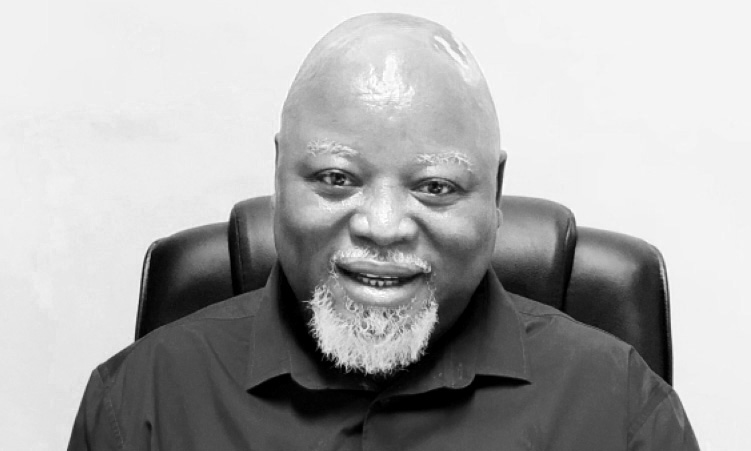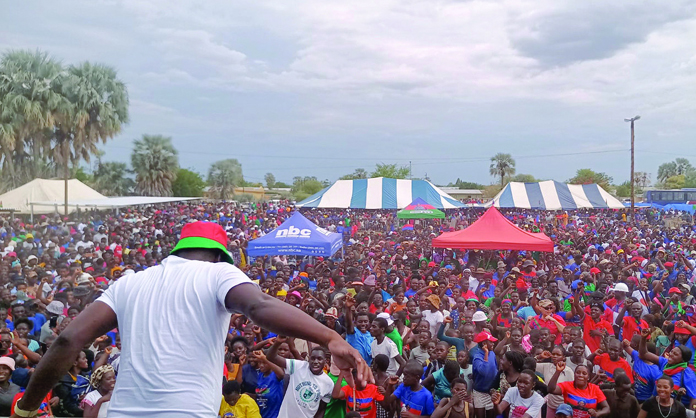Windhoek Mayor Queen Kamati’s recent site visits to assess traffic flow and enforce by-laws, particularly concerning illegal trading, have sparked a significant debate about the city’s approach to managing its informal sector.
While efforts to maintain order and cleanliness in the nation’s capital are understandable, the manner of the mayor’s engagement with informal vendors raises concerns about empathy for the socio-economic realities that drive them to the streets.
It suggests a disconnect between city officials and the lived experiences of Windhoek’s most vulnerable residents.
The informal sector plays a crucial role in the economy, providing essential goods and services to many who cannot access them through formal channels.
Informal vendors, often seen at taxi ranks, open markets and road reserves, are not merely operating to make money.
They are struggling to survive, operating on the margins of the economy because of a lack of viable employment opportunities in the formal sector.
For many, setting up a stall is about making enough to feed their families for another day.
To dismiss their activities as illegal without acknowledging the socio-economic pressures that push them into this informal economy is to be tone-deaf.
DIGNITY FOR ALL
Urging vendors to take responsibility for cleanliness and avoid trading in prohibited areas is rooted in valid concerns about orderliness and public safety.
However, the mayor’s approach appears to prioritise aesthetics over people’s livelihoods.
This perspective not only risks criminalising poverty but deepens the divide between the City and its most marginalised citizens.
It can be perceived as failing to recognise the dignity and resilience of those who make their living in the informal sector.
Enforcing by-laws is necessary to maintain order in any city, but it must be done with a sense of fairness and an understanding of the broader context.
In Windhoek, as in many urban centres across Africa, informal trade is not a choice but a necessity for thousands of people.
Rigidly applying by-laws without efforts to provide viable alternatives or support for these vendors exacerbates their vulnerability and could push them further into the shadows of the informal economy.
By-laws should serve the community equitably.
A more constructive approach would involve meaningful engagement with vendors to understand their challenges and work collaboratively to find solutions.
LIVED REALITIES
Mayor Kamati has promised to meet with vendors but these discussions must go beyond educating them about municipal regulations.
They should provide an opportunity to listen to vendors’ concerns and co-create strategies that balance the need for orderliness with citizens’ economic needs.
This could include designated trading areas, offering legal and financial support to help vendors transition to the formal economy and ensuring that any enforcement actions are accompanied by initiatives that address the root causes of informal trading.
Moreover, the mayor’s administration should recognise that the informal sector is not just a challenge to be managed but a vital component of the city’s economy.
Informal vendors provide goods and services accessible to low-income residents and contribute to Windhoek’s social and economic fabric.
Their activities are a response to economic conditions and the broader challenges facing Namibia’s economy, such as unemployment and poverty.
The hostile environment in which vendors operate needs to change.
Imagine going to your workplace every day only to be threatened or harassed.
Unfortunately, this is the reality for many informal vendors.
They are treated as nuisances, rather than as people trying to make an honest living under difficult circumstances.
This is unjust and counterproductive. By alienating a significant section of the city’s population, the administration risks undermining social cohesion and stability.
INCLUSIVITY
A more compassionate and inclusive approach is needed – one that recognises the dignity of all residents regardless of their economic status. This means viewing informal vendors as partners in the city’s development.
It requires an administration willing to roll up its sleeves and work alongside these vendors to find solutions that work for everyone.
This will not only help maintain order and cleanliness, but also strengthen Windhoek’s social and economic resilience.
Mayor Kamati’s intentions are commendable, but her approach could benefit from greater empathy and a deeper understanding of the socio-economic context in which informal vendors operate.
The informal sector is not a problem to be eradicated, it is a vital part of the economy, supports countless families and contributes to the stability of our society.
It is time for the city to adopt a more inclusive and compassionate stance, one that reflects the realities of all its citizens.
- * Ndumba J Kamwanyah studies the interplay of social welfare policy, democracy and development.
Stay informed with The Namibian – your source for credible journalism. Get in-depth reporting and opinions for
only N$85 a month. Invest in journalism, invest in democracy –
Subscribe Now!






